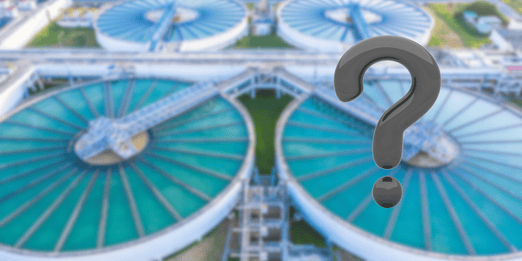Water treatment is the process of improving water quality to make it suitable for a specific end use—commonly drinking, industrial applications, irrigation, or safe environmental discharge. The treatment process removes harmful contaminants, bacteria, viruses, chemicals, and sediments from water sources like rivers, lakes, groundwater, or municipal supplies.
Importance of Water Treatment
The importance of water treatment cannot be overstated. Here’s why it matters:
1. Health and Safety
Untreated water may carry harmful pathogens like E. coli, cholera, and hepatitis, which can lead to serious illness. Treating water ensures it’s safe for human consumption.
2. Environmental Protection
Proper treatment prevents pollutants from entering ecosystems, reducing water pollution in rivers, lakes, and oceans.
3. Industrial Efficiency
Industries require water free of certain minerals and sediments to avoid equipment damage or contamination of products.
4. Water Reuse and Sustainability
Modern treatment allows for wastewater recycling, reducing freshwater consumption and supporting sustainable living.
The Water Treatment Process: Step-by-Step
While the water treatment process may vary based on the source and intended use, most treatment systems include the following key steps:
1. Coagulation and Flocculation
Chemicals (coagulants) are added to water to bind small particles into larger clumps called flocs.
2. Sedimentation
The flocs sink to the bottom of the tank during this phase, allowing clear water to remain on top.
3. Filtration
Water is passed through layers of sand, gravel, or other filtering media to remove smaller particles and impurities.
4. Disinfection
The water is then disinfected using chlorine, ozone, or UV light to kill bacteria, viruses, and pathogens.
5. Storage and Distribution
The treated water is stored in tanks and distributed to homes, industries, or bottled for consumption, especially in mineral water plants.
Types of Water Treatment
There are several types of water treatment, depending on the water source and the specific impurities that need removal.
1. Drinking Water Treatment
This involves filtering and disinfecting raw water to make it safe for human consumption. Methods include reverse osmosis, UV purification, and activated carbon filtration.
2. Wastewater Treatment
Used water from households or industries is treated for safe disposal or reuse. It involves biological and chemical processes to break down waste and eliminate pathogens.
3. Industrial Water Treatment
Designed to treat water used in manufacturing and production processes. It may include softening, demineralization, and chemical dosing to prevent scaling and corrosion.
4. Desalination
This process removes salt and minerals from seawater or brackish water, making it suitable for drinking or irrigation, especially in coastal or arid regions.
5. Mineral Water Treatment
Used in mineral water plants, this type of treatment not only purifies water but also enriches it with essential minerals to meet health standards and consumer demand.
Mineral Water Plant – What You Should Know
With the growing demand for safe bottled drinking water, mineral water plants have become increasingly popular. These plants use advanced filtration systems to remove contaminants and then add back essential minerals like calcium, magnesium, and potassium to enhance taste and health benefits.
A typical mineral water plant setup includes:
- Raw water storage tanks
- Pressure sand and carbon filters
- Reverse osmosis (RO) units
- UV sterilizers and ozone generators
- Mineral dosing systems
- Bottling and packaging units
Setting up a plant requires regulatory compliance, proper licensing, and guidance from reliable water treatment plant manufacturers in Ahmedabad.
Water Treatment Plant Manufacturers in Ahmedabad
Ahmedabad is home to some of India’s leading manufacturers of water treatment plants, offering advanced solutions for residential, commercial, and industrial clients. These companies provide custom-built systems for:
- Drinking water treatment
- Wastewater recycling
- Effluent and sewage treatment
- RO and DM (demineralized) water plants
- Mineral water bottling plants
Whether you’re looking to set up a new plant or upgrade an existing system, working with water treatment plant manufacturers in Ahmedabad ensures:
- Quality components and modern technology
- Expert consultation and installation
- Ongoing maintenance and support
- Cost-effective and sustainable solutions
Investing in the right technology today can save time, money, and resources for years to come.
How to Choose the Right Water Treatment Solution
Choosing the right water treatment system depends on:
- Source of Water: Is it municipal, borewell, river, or seawater?
- Usage: Drinking, industrial, irrigation, or wastewater recycling?
- Water Quality Test Results: This reveals contaminants like TDS, hardness, bacteria, heavy metals, etc.
- Budget and Scale: Small home units vs. large-scale plants require different technologies.
Always consult with certified professionals or reputed manufacturers in Ahmedabad to design the best-fit solution for your needs.
Frequently Asked Questions (FAQs)
1. What is the main purpose of water treatment?
The main purpose is to make water safe for its intended use—usually drinking or industrial applications—by removing harmful contaminants.
2. What is the difference between water purification and water treatment?
Water purification is a part of the water treatment process that specifically focuses on removing contaminants to make water clean. Water treatment includes broader processes like disinfection, pH correction, and mineral enrichment.
3. Can I drink water directly from a borewell?
No. Borewell water often contains high levels of minerals, hardness, and potential pathogens. It must be treated before consumption.
4. How much does it cost to set up a mineral water plant?
The cost depends on the capacity, equipment, and location. Small-scale setups may start around ₹5–10 lakhs, while large commercial units can cost significantly more.
Final Thoughts
Water is the essence of life—but only when it’s clean and safe. Understanding the water treatment process is not just for engineers or scientists—it’s essential knowledge for homeowners, entrepreneurs, and policymakers alike.
Whether you’re exploring solutions for your home or planning to invest in a mineral water plant, knowing the types of water treatment and their importance helps you make smarter, safer decisions. If you’re in Gujarat, consider working with trusted water treatment plant manufacturers in Ahmedabad for tailored, high-quality systems that ensure reliability and efficiency.

